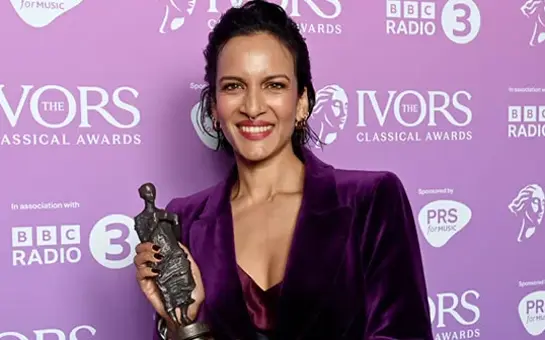Showreels
Anoushka Shankar: In Her Name
Biography
To read a list of sitarist and composer Anoushka Shankar’s accomplishments is to read many life stories in one: prolific 11-time Grammy®-nominated recording artist; touring veteran;
film composer; artistic curator; published author; impassioned activist. Anoushka was the youngest and first female recipient of a British House of Commons Shield at the age of eighteen; an Ivor Novello Award-nominee for her A Suitable Boy soundtrack; an Honorary Member of the Royal Academy of Music; the first Indian musician to perform live or serve as presenter at the Grammy® Awards, and the first Indian woman ever nominated; one of the
first five female composers to have been added to the UK A-level music syllabus; and most recently, in June 2024, the recipient of an Honorary Degree in Music from Oxford University.
Anoushka is currently celebrating thirty years of global touring since her prodigious debut at the age of thirteen. She began studying the sitar and Indian classical music under the
intensive tutelage of her father, Pandit Ravi Shankar, learning by ear not only the musical tradition that has been passed on through generations but also the improvisatory freedom
for which her father was so renowned. A love of this creative freedom has drawn her across borders and timelines to collaborate with a mind-bogglingly diverse array of artists including Herbie Hancock, Patti Smith, Sting, Zubin Mehta, Joshua Bell, Arooj Aftab, Jacob Collier, Nils
Frahm, M.I.A, His Holiness the Dalai Lama and her half-sister Norah Jones. Her versatility is built from years honing her craft on stages from legendary jazz cafes to iconic symphony
halls and festivals of 40,000 people, playing with venerable orchestras and ever-changing band formations, expanding the confidence to be artistically truthful and to connect to her
audience from the heart.
Anoushka most recently released Chapter III: We Return to Light, the final part of a trilogy of mini-albums, and was Guest Director of Brighton Festival 2025. She is a singular, genre-defying artist known for breaking new ground across realms, with a boundless commitment to forging connection, hope and peace through music.
Placements

MP Tourism featuring Anoushka Shankar
- Track
- "Reunion"
- Performers
- Anoushka Shankar
- Writers
- Anoushka Shankar
News

Anoushka Shankar receives Ivor Novello Innovation Award
12 november 2025
2026 GRAMMY Nominations: Anoushka Shankar & Ron Trent
10 november 2025

Anoushka Shankar releases 'We Burn So Brightly'
21 februar 2025


